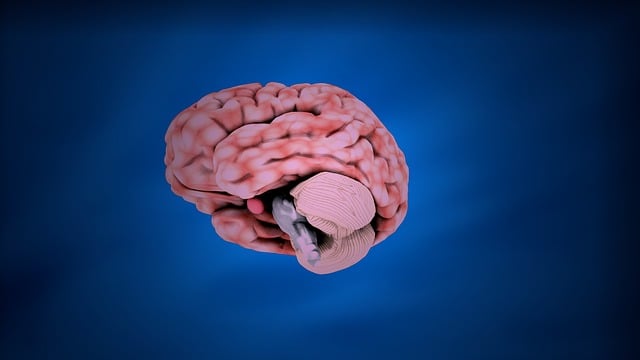Castle Rock Adolescent and Teen Therapy leverages mental health data analysis to revolutionize therapeutic approaches, ensuring personalized treatment plans for each client. Therapists meticulously analyze various data sources to understand patients' unique experiences and behaviors, incorporating evidence-based practices like Compassion Cultivation. This data-driven method enhances self-compassion, resilience, and outcomes, while ethical considerations, including HIPAA compliance, cultural sensitivity, and informed consent, guide their practices. Data visualization tools help track progress, identify trends, and tailor interventions, ultimately improving the therapeutic journey for young individuals.
Mental health data analysis is transforming the way we approach therapy, particularly at institutions like Castle Rock Adolescent and Teen Therapy. By understanding and interpreting complex data sets, professionals can personalize treatment plans, identify trends, and ultimately improve patient outcomes. This article explores these key aspects, delving into the foundational role of data analysis in mental health care, its impact on treatment customization, trend identification, ethical considerations, and the power of advanced visualization techniques at Castle Rock Adolescent and Teen Therapy.
- Understanding Mental Health Data: A Foundation for Effective Therapy at Castle Rock Adolescent and Teen Therapy
- The Role of Data Analysis in Personalizing Treatment Plans
- Interpreting Trends: Uncovering Patterns to Improve Patient Outcomes
- Ethical Considerations in Mental Health Data Management
- Enhancing Therapy with Advanced Data Visualization Techniques
Understanding Mental Health Data: A Foundation for Effective Therapy at Castle Rock Adolescent and Teen Therapy

Understanding Mental Health Data is a cornerstone for delivering effective therapy at Castle Rock Adolescent and Teen Therapy. By meticulously analyzing and interpreting information gathered from various sources, therapists gain valuable insights into each client’s unique experiences, behaviors, and emotional states. This data-driven approach allows for personalized treatment plans that address specific needs, whether it’s implementing Compassion Cultivation Practices to foster self-compassion or focusing on self-esteem improvement to boost resilience.
At Castle Rock Adolescent and Teen Therapy, we recognize the importance of thorough risk assessment as part of our commitment to mental health professionals’ safety and client outcomes. By integrating data analysis with evidence-based practices, our team ensures interventions are both effective and tailored to the individual, ultimately enhancing the therapeutic journey for every young person we serve.
The Role of Data Analysis in Personalizing Treatment Plans

In the realm of mental health care, data analysis plays a pivotal role in revolutionizing treatment approaches. By meticulously examining and interpreting vast datasets, professionals can gain valuable insights into adolescent and teen therapy, such as that offered at Castle Rock Adolescent and Teen Therapy. This process allows for a more personalized and effective treatment strategy. For instance, analyzing trends in patient outcomes, treatment modalities, and demographic information enables therapists to tailor interventions to individual needs.
For example, data might reveal specific therapeutic techniques or self-care routine development (a key aspect of better mental health) that show higher success rates with certain age groups or individuals facing particular challenges. This knowledge can guide the design of community outreach programs implementation and mental health education programs, ensuring resources are allocated efficiently. Ultimately, personalized treatment plans, informed by data analysis, have the potential to enhance therapeutic outcomes and foster resilience among young people.
Interpreting Trends: Uncovering Patterns to Improve Patient Outcomes

In the realm of mental health data analysis, one of the key aspects is interpreting trends to uncover patterns that can drive improvements in patient outcomes. By examining trends within Castle Rock Adolescent and Teen Therapy’s datasets, professionals gain valuable insights into what works best for different demographics and issues. This involves delving into statistics related to common mental health challenges among teens, tracking treatment effectiveness, and identifying factors that contribute to resilience building. Through such analysis, the therapy center can tailor its services more effectively, ensuring that each patient receives personalized guidance.
For instance, data might reveal a correlation between certain therapeutic interventions and improved self-care routine development for better mental health. This knowledge prompts therapists to incorporate specific techniques into their practices. Additionally, analyzing trends in mental wellness journaling exercises can provide guidance on the most beneficial content and frequency for teens. By leveraging data in this way, Castle Rock Adolescent and Teen Therapy not only enhances its own services but also contributes to a broader understanding of mental health care, ultimately fostering better outcomes for young individuals.
Ethical Considerations in Mental Health Data Management

In the realm of mental health data analysis, ethical considerations are paramount, especially when dealing with vulnerable populations such as adolescents and teens, as seen in Castle Rock Adolescent and Teen Therapy practices. The privacy and confidentiality of patient information must be rigorously upheld, adhering to strict guidelines and regulatory frameworks like HIPAA (Health Insurance Portability and Accountability Act). Sensitivity towards the diverse cultural backgrounds of patients is crucial; cultural sensitivity in mental healthcare practice ensures that interventions are tailored to individual needs, avoiding stereotypes and biased interpretations of data.
Emotional healing processes often involve personal disclosures and intimate details, necessitating an ethical framework that respects autonomy, informed consent, and the right to withdraw at any time. Additionally, the integration of Mental Wellness Journaling Exercises as a guidance tool must be approached with care, ensuring patient safety and confidentiality while maintaining the integrity of data collected for analysis.
Enhancing Therapy with Advanced Data Visualization Techniques

In the realm of mental health care, data visualization plays a pivotal role in enhancing therapy and improving patient outcomes. Advanced techniques like interactive graphs, heatmaps, and network diagrams can transform complex data into understandable visual narratives. For instance, Castle Rock Adolescent and Teen Therapy can leverage these tools to track progress, identify trends, and tailor interventions more effectively. By visualizing symptoms over time, therapists can pinpoint areas of improvement and highlight lingering challenges, enabling them to adjust treatment plans accordingly.
Furthermore, incorporating data visualization in therapy sessions can significantly aid in stress reduction methods. Visual representations make it easier for patients to grasp their emotional patterns and triggers, fostering self-awareness and empowering them to manage their mental health proactively. This approach also facilitates risk assessment for mental health professionals by providing a clearer view of patient progress, helping them anticipate potential risks and design more robust Mental Health Education Programs.
Mental health data analysis plays a pivotal role in enhancing therapeutic outcomes at institutions like Castle Rock Adolescent and Teen Therapy. By interpreting trends and patterns, professionals can personalize treatment plans, ensuring each patient receives the most effective care. Ethical considerations are paramount to maintaining confidentiality and privacy. Advanced data visualization techniques further empower therapists to make informed decisions, ultimately improving patient lives and fostering better mental health management.











